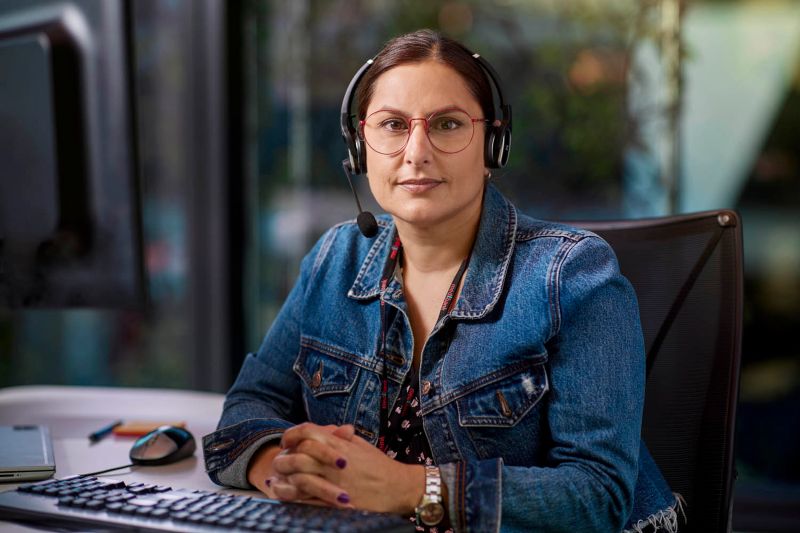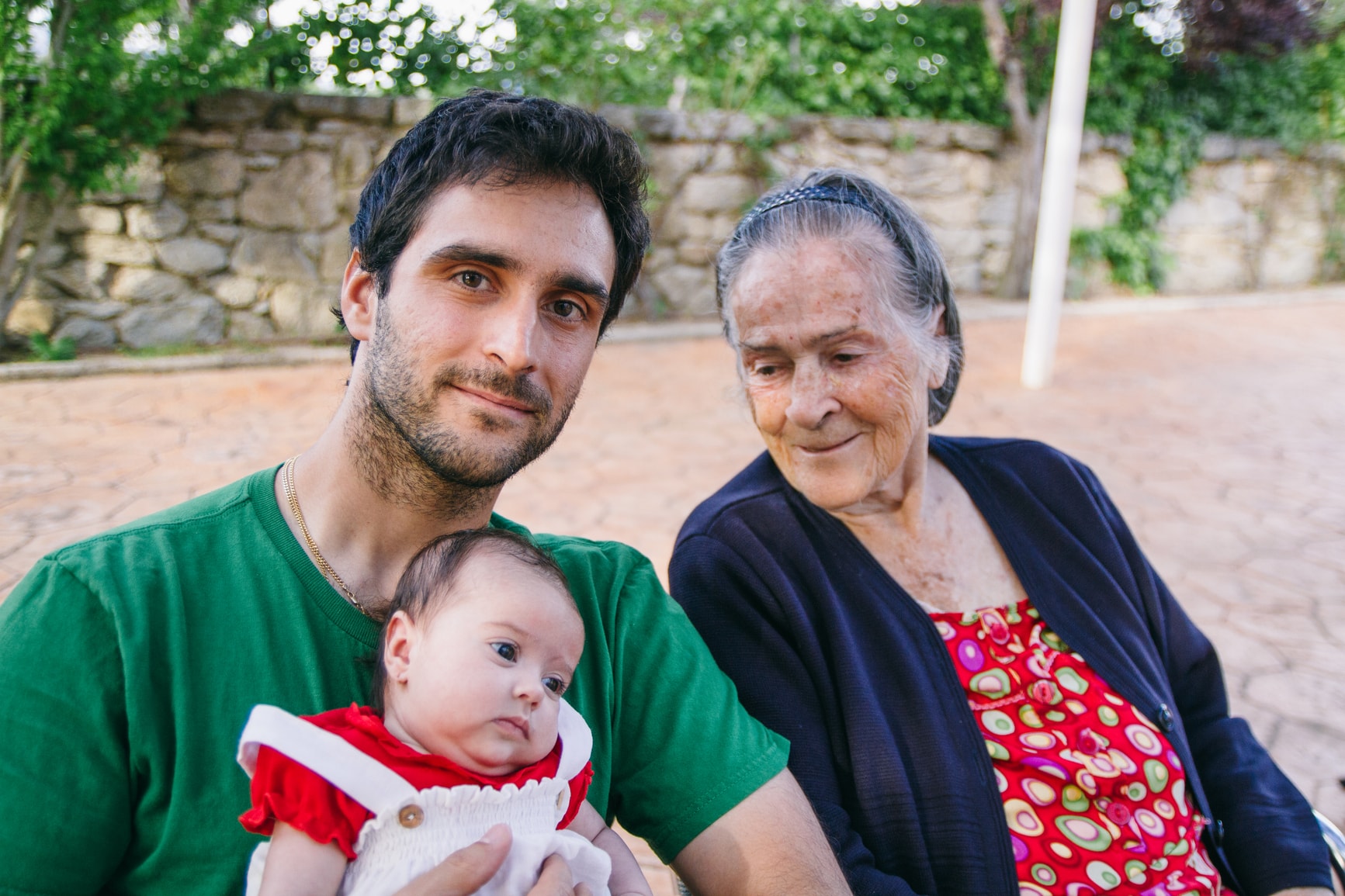-
^ To be eligible for the waiver, you need to have held hospital cover without a break of more than 2 months. You can only use the Mental Health Waiver once in your lifetime. The waiver only applies to the 2-month waiting period for the higher Included benefits for in-hospital psychiatric services and all other applicable waiting periods will continue to apply.
This article is of a general nature only. You should always seek medical advice if you are worried about someone or are experiencing signs or symptoms of an eating disorder.
Eating disorders
If you have obsessive thoughts and behaviours about food and weight, you’re not alone. It’s estimated that over 1 million Australians are affected by eating disorders.
Jump to section: Symptoms and warning signs | Types | Causes | Treatment | Getting support
Eating disorders are a mental health condition that can affect anyone, regardless of age, gender, shape or size. If you think you’re experiencing symptoms of an eating disorder, speak to your GP. They’ll be able to offer you support and advise on the best next steps for your treatment.



Symptoms and warning signs of an eating disorder
People with eating disorders can experience a wide range of symptoms and there is no ‘one size fits all’ when it comes to this mental health condition.
However, some warning signs could include weight fluctuations (gaining or losing), preoccupation with body appearance or weight, increased mood changes and irritability, sensitivity to cold, social withdrawal or obsessive rituals around food and food preparation. You might also notice an increased interest in preparing food for others, frequent excuses not to eat or a tendency to eat in secret, away from social situations.
If you have an eating disorder you might notice that you struggle to think rationally or concentrate. You might also experience anxiety or depression symptoms.
If you notice any of these warning signs in yourself or in a loved one, speak to your GP immediately. They will be able to advise on next steps and offer support.
Better supported with 24/7 Medibank Mental Health Support
When you’re feeling stressed or overwhelmed, it can be hard to know where to start. Medibank health insurance members can talk to a mental health professional over the phone or online, any time of the day or night at no extra cost.~

Types of eating disorders
Some of the main types of eating disorders include:
Anorexia nervosa
Restricted eating that results in weight loss, and fear of gaining weight.
Bulimia nervosa
Involves periods of binge eating unhealthy foods, followed by attempts to compensate by over-exercising, vomiting, or strict dieting.
Binge eating disorder
Recurring periods of binge eating followed by feelings of guilt, disgust and depression.
Other specified feeding and eating disorders (OSFED)
Eating behaviours that cause distress that aren’t categorised in the above three.
Even if you don’t fit into any of these categories it’s important to seek help if you are struggling with obsessive or negative thoughts about food or your body, or if you’re feeling anxious or overwhelmed.



What causes an eating disorder?
There is no one single cause of an eating disorder. Social, psychological and biological factors all play a part and the root cause is unique to each person.
The most important thing to remember is that your eating disorder is not your fault, it is a mental health condition that can affect anybody.
Social factors
These can include the media and representations of the ‘ideal body’, pressure to succeed, our cultural tendency to judge people on appearance or activities that encourage a certain body shape or weight e.g. ballet, modelling or gymnastics.
Major life changes
Changes such as relationship breakdowns, pregnancy, the death of a loved one, moving to a new city or becoming a new parent can contribute to the onset of an eating disorder.
Life stressors
Fears of the responsibilities of adulthood, communication issues with friends or family or long held beliefs about the relationship between love and achievement along with many others can all accumulate to trigger an eating disorder.
Biological factors
Physical changes during adolescence or growing up as part of a family unit that are overly focused on body image, food or appearance can contribute to the onset of an eating disorder.
Psychological factors
Issues such as low self-esteem, negative body image, anxiety, depression, obsessive thinking and difficulty expressing emotion can manifest as an eating disorder.
There is also some evidence to suggest that eating disorders could have a genetic basis, although the biological causes are not well understood.
Treatment of eating disorders
If you suspect that you might have an eating disorder, it’s important to reach out and seek help, however hard that might be. Whilst recovery can be slow, with the right help and support it is possible to manage your eating disorder and even recover completely.
It’s normal to feel stressed, nervous, embarrassed, anxious or even ashamed when it comes to seeking treatment for an eating disorder. You may be in denial about your issue or feel that you have the disorder under control on your own, even when you don’t.
Remember, getting treatment as early as possible can reduce the severity and impact of an eating disorder so seek help as soon as you notice any warning signs.
Your doctor can help you set up a personalised treatment plan. Everyone is different, and what works for one person may not work for someone else, even if they have the same type of eating disorder. There are several types of effective treatment that are supported by evidence, and most people will need to try a combination of things. It’s usually recommended to get support from a team of health professionals such as a dietitian, social worker, dentist, psychologist, psychiatrist or others, depending on your individual needs. At some points, you may need extra support or more intensive treatment, and at other times you may need less. This is a normal part of recovery.
Where to get help
The best place to start is by speaking to your GP or health practitioner. They will be able to assess your individual situation and recommend the best next steps for your recovery.
A team of mental health professionals are here to support you with 24/7 Medibank Mental Health Support. It’s available to Medibank health insurance members at no extra cost~ 24 hours a day, 7 days a week. Call 1800 644 325 or log in using My Medibank.
If at any point you feel like someone’s life is in danger, seek immediate help. Contact Lifeline on 13 11 14 for crisis support and call 000 if you believe that someone’s life is in danger.
For more support and information
Make the most of your cover
As an eligible Medibank member, you get more than just health insurance. You get extra support when you need it most.
24/7 Medibank Mental Health Support
Medibank health insurance members can speak with a mental health professional over the phone or online at no extra cost.~ Chat online or call 1800 644 325.
Telehealth services
Access mental health services from the comfort of your own home. Medibank members with eligible extras can access psychology or counselling consultations face-to-face or through telehealth, with benefits payable towards Medibank recognised Counsellors only.#
Mental Health Waiver
Eligible members^ with hospital cover who have served a waiting period for Restricted hospital psychiatric services on Basic, Bronze or Silver Hospital cover, can choose to upgrade their cover to one with Included hospital psychiatric services, and have the 2-month waiting period for those higher benefits on psychiatric services waived. This waiver applies only once per lifetime.
Looking for more?
Learn more about using your cover and exclusive services to support you and your family. View all services.
Further reading


Depression
Depression or just a bit down? Here’s how to tell the difference and what you can do to improve your mental wellbeing.

Types of anxiety
Anxiety can present itself in numerous different forms. Learn about each form of anxiety and how they differ.

Worried about your adult child's mental health?
How to recognise the signs of anxiety and depression in young adult children.
Looking for something else?
Visit our Medibank Better Minds homepage to find more tools and services.
Talk to us about your cover and accessing services
Contact Medibank when and how it suits you: online 24/7, in-store, by phone or through the My Medibank app.
Things you need to know
~ Some referred services may involve out of pocket costs and waiting periods may apply.
# Check your cover summary to see if these services are included on your extras cover and if annual limits apply. Counsellors must be registered with Australian Counselling Association, Psychotherapy and Counselling Federation of Australia, Australian Traditional Medicine Society.
While we hope you find this information helpful, please note that it is general in nature. It is not health advice, and is not tailored to meet your individual health needs. You should always consult a trusted health professional before making decisions about your health care. While we have prepared the information carefully, we can’t guarantee that it is accurate, complete or up-to-date. And while we may mention goods or services provided by others, we aren’t specifically endorsing them and can’t accept responsibility for them. For these reasons we are unable to accept responsibility for any loss that may be sustained from acting on this information (subject to applicable consumer guarantees).